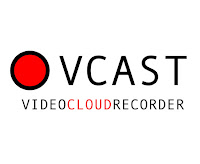AG Szpunar advises CJEU on cloud-based recording and private copying exception
Does EU law prohibit a commercial undertaking from providing - without the authorisation of the relevant copyright owner - private individuals with cloud computing services for the remote video recording of private copies of works protected by copyright, by means of that commercial undertaking’s active involvement in the recording?
This - in essence - is the issue at stake in VCAST Limited v R.T.I. SpA, C-265/16, a reference for a preliminary ruling to the Court of Justice of the European Union (CJEU) from the Turin Court of First Instance.
This morning Advocate General (AG) Szpunar answered the question in the affirmative in his Opinion [not yet available in English].
Background
This reference was made in the context of proceedings concerning the unauthorised making available by VCAST (a UK company that calls itself a "video cloud recorder") of a cloud-based recording service that allows the recording of free-to-air TV programmes, including those of RTI (which is part of the Mediaset Group).
VCAST users are able to select the relevant network and time of recording. VCAST is then able to identify the TV signal through its antennae, while the actual recording is done by independent providers. Users are able to enjoy the recordings through ad-based or paid-for and ad-free subscriptions.
VCAST sued RTI before the Turin Court of First Instance, seeking a judgment that would acknowledge the lawfulness of its activities. VCAST's argument is substantially that its activities fall within the scope of Articles 71-sexies and -septies of the Italian Copyright Act, ie the Italian private copying exception. This would be so because it would be users, rather than VCAST, to make the recordings. VCAST would only provide the tools for the making of such recordings.
The Turin court was not sure about the correct interpretation of the relevant provisions under EU copyright law, ie Article 5(2)(b) of the InfoSoc Directive [the reference also raises issues of compatibility with the E-Commerce Directive, but AG Szpunar excluded that this would be relevant], and whether Italian law would be compatible with the EU framework. Thus, it decided to stay the proceedings and refer the case to the CJEU.
The AG Opinion
Further to an explanation of the nature of cloud computing, AG Szpunar noted that the present case requires the CJEU to consider whether the private copying exception is applicable in a context in which the act of reproduction is not done directly by the beneficiary of the exception [ie a “natural person”], since copying requires the intervention of a service provider [para 3].
More broadly, this case is about exploring the boundaries of the private copying exception [para 4; this is something that the CJEU has been asked to do in a string of cases: besides those requiring consideration of systems private copying levies, the Court has explored the scope of Article 5(2)(b) in ACI Adam - Katposts here - and the recent Filmspeler case - Katposts here].
In this sense, existing CJEU case law suggests that the exception (and the payment of the relevant compensation) is applicable to those who make copies using third-party media and devices. This would be also applicable to cloud computing recording services [para 24].
More generally, according to the AG the exclusion of any reproduction that involves the intervention of a party other than the direct beneficiary would be unjustified [para 25]. As long as the natural person/user takes the initiative of the reproduction and defines subject and modalities of the reproduction, there is no difference with reproductions made through devices and media that the user controls.
 |
| Kat-cloud |
Having said so, however, for the applicability of the exception in Article 5(2)(b) of the InfoSoc Directive it is required that the user has lawful access to the work that he/she copies.
This condition would not be satisfied in the case of VCAST [para 29]. The user in fact would be able to use VCAST’s service without having also access to the TV programs on the Italian territory [para 36]. This means that the reproduction done through VCAST might be the only way for the user to access the work reproduced [para 38].
AG Szpunar also pointed out that VCAST does both a communication to the public and a reproduction [para 39]. According to the AG, VCAST makes available to the public audiovisual works without the authorisation of relevant rightholders. Although those at hand are free-to-air TV programs, VCAST’s service is not limited to the Italian territory [para 43]. Furthermore, VCAST makes the works available to a ‘new public’ [para 45]. According to the AG, the ‘AKM exception’ [a case that the AG labelled as "not entirely clear": para 53] would not be applicable [para 53].
Finally, AG Szpunar referred to the three-step test in Article 5(5) of the InfoSoc Directive. He noted that the conditions therein would prevent the applicability of the private copying exception to a subject like VCAST.
Let’s now wait to hear from the CJEU: stay tuned!
[Originally published on The IPKat on 7 September 2017]




Comments
Post a Comment